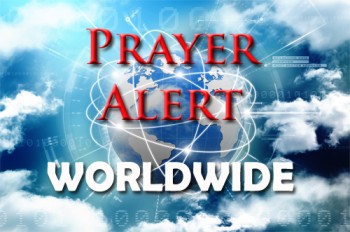Displaying items by tag: gang violence
Trinidad and Tobago: gang violence surges
A nationwide state of emergency has been declared in Trinidad and Tobago following a surge in gang violence which left over sixty dead in December, pushing the year’s murder toll to 623 - the highest in over a decade. Rival gangs are locked in a brutal territorial war, with recent shootings targeting gang members and innocent bystanders. National security minister Fitzgerald Hinds called the violence an ‘epidemic’. Authorities have deployed increased police and military forces, empowered to conduct searches and detain suspects without warrants for up to 48 hours. The dual island nation, strategically located for narcotics trafficking, faces significant challenges from over a hundred active gangs. A previous gang ceasefire collapsed, escalating killings fuelled by alliances with smaller groups. Despite the tension, schools, businesses, and other activities such as the New Year’s celebrations will go ahead as planned. Another Caribbean island, Barbados, is recovering from the devastation caused by Hurricane Beryl: see
Haiti: airport closed, new prime minister, gang violence
Haiti’s international airport has closed for the second time this year after suspected gang gunfire struck two US passenger planes. The UN has also paused helicopter landings, while the US embassy has warned citizens to avoid travel within the country due to unpredictable violence. Haiti’s instability, driven by rampant gang violence, has displaced over 700,000 people and claimed nearly 4,000 lives this year. Further evidence of the country’s fragility came with the ousting on 11 November of interim prime minister Garry Conille, who has been replaced by businessman Alix Didier Fils-Aimé. Many key transportation routes remain under the control of gangs who regularly kidnap bus passengers and truck drivers: many Port-au-Prince residents have no safe way out of the city. In October almost a hundred people were killed in a massacre by gang members sixty miles from the capital.
Haiti: nearly half the population face acute food shortages
According to the IPC, a world hunger watchdog, nearly 48% of Haiti's population faces acute food shortages. Over five million people are enduring ‘high levels of acute food insecurity’ from August 2024 to February 2025. Armed gang violence, rampant across Haiti, is a major factor contributing to the crisis. Despite international interventions and the appointment of a new government, the gangs currently control 80% of Port-au-Prince and key roads leading to the north and south of the country. The difficulties have led to high Inflation, with food costs now consuming up to 70% of household expenses. The lingering impacts of natural disasters like Hurricane Matthew and the 2021 earthquake further exacerbate the situation. A UN-backed mission led by Kenya has made some progress, but the IPC has warned that the overall crisis will likely worsen in the next eight months.
Haiti: thousands of young men eager to join military
The Haitian government has announced a recruitment drive for its military, attracting thousands of young men eager for jobs amid widespread gang violence and economic hardship. Many, like 21-year-old Maurenceley Clerge, see joining the military as a rare job opportunity in a deeply impoverished country. They want to improve their lives and serve their country, despite the risks of kidnapping, torture, or death. The army, disbanded in 1995 due to its notorious human rights abuses and involvement in coups, was reinstated in 2017 when the UN peace-keeping force withdrew from the country. The force currently has around 2,000 soldiers, but aims to more than double its size. More than 3,200 killings have been reported in Haiti from January to May, with gang violence leaving more than half a million people homeless in recent years.
Haiti: UN sends food aid for displaced
The UN has announced the delivery of aid to Haiti, which will help hundreds of displaced families due to the ongoing violence and the upcoming hurricane season. A spokesman said, ‘Two cargo flights organised by the World Food Programme (WFP) have landed in Port au Prince, carrying 55 tonnes of medicine, shelter and hygiene materials. The WFP school meals programme has distributed some 30 million meals across the country since the start of the current school year: of these, nearly 17 million have been provided through its programme which supports local farmers. The education sector has been severely impacted by the recent violence, with more than 200,000 children and 4000 teachers affected.’ Haiti’s hurricane season, which lasts from June to November, is forecast to be severe this year. A gang-fuelled crisis has devastated the country, and the UN estimates that currently 360,000 people are displaced.
Haiti: new prime minister announced
On 28 May Garry Conille was appointed as Haiti's new prime minister, following a month-long selection process after Ariel Henry resigned in April. Conille, UNICEF's regional director for Latin America and the Caribbean since January 2023, had previously served as prime minister from October 2011 to May 2012. His appointment comes amid severe gang violence in Port-au-Prince, where gangs have attacked police stations, demolished prisons, and released over 4,000 inmates. Following coordinated gang attacks on 29 February, Port-au-Prince's main airport was out of action for nearly three months. Conille has a background in medicine and public health, contributing to Haiti's reconstruction efforts after the devastating 2010 earthquake. As he assumes office, Haiti is still waiting for the UN-backed deployment of a police force from Kenya and other countries.
Haiti: uncertainty after PM’s resignation
Haiti faces uncertainty after prime minister Ariel Henry's resignation, welcomed by Haitians amid escalating gang violence. Henry, stranded in Puerto Rico, pledged to resign once a transition council and temporary leader were chosen. US officials, after talks in Jamaica, expect the council to be appointed soon. Acting prime minister Michel Boisvert has signalled his willingness to facilitate an orderly transition. Port-au-Prince shows signs of improved security; the streets are quiet and the main cargo port has been reopened, though the airport remains closed. One of Haiti’s largest TV stations has left its headquarters, citing the insecurity. In another potential setback, the plans to deploy Kenyan police officers for a UN-backed security mission are on hold pending a new interim government. Haitians hope for stability as they await a new leadership amidst ongoing challenges.
Guatemala: prison inmates’ gang fight
500 riot police officers entered a prison after a riot broke out at the facility, in the municipality of Cantel. At least seven prisoners were killed in the fight between rival gangs: most of them were beheaded. The prison, 125 miles from the capital, was built to house 500 inmates but has more than 2,000. Police sources told local media one of the inmates had ordered the attack on rival gang members in retaliation for the murder of his wife, who had been shot dead by two men on motorbikes hours earlier. According to the source, this man is serving a sentence for murder. Almost half of the roughly 3,500 violent deaths a year in Guatemala are carried out by gangs.







